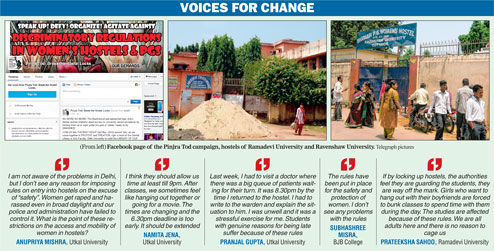
Bhubaneswar, Sept. 6: Your wait for the best organic farm products is going to be over shortly.
If the Odisha Khadi and Village Industries Board has its way, you will be able to buy the best of organic fruits, vegetables, honey and other products at your nearest retail store.
The board officials are visiting rural areas and identifying potential clusters for setting up micro industries. Recently, the officials visited Kalahandi-Balangir-Koraput (KBK) districts and identified a number of organic food items that will be promoted across the state.
"There are a number of tribal people residing in and around the Niyamgiri Hills. During our 11-day trip, we found out that they produce fruits such as pineapple and litchi in large numbers. Vegetables including potato and garlic are also produced in huge quantities," said board president Tejeswar Parida.
The board, which also promotes fabrics, has made intensive plans for the branding and marketing of these products.
"They are completely natural and no fertilisers are used in the farming process. Such items are in high demand in the towns and cities. So we have decided to market them properly," the board president said. The board will promote these products under the brand name of Niyamgiri.
Products made by the various village industry societies in Nabarangpur district will also be marketed under the brand name of Nabarangi.
"The honey produced in this district is of great quality, but its sale is limited to nearby areas only. A number of other useful items such as mops and incense sticks are also made by the local people. We are trying to find out ways to ensure that they are able to sell it in the urban markets," Parida said.
The board will send a proposal to the government this week for approval of its plan.
"Once funds are sanctioned we will begin the process of branding the products. We will also tie-up with various retail stores and put up the products for sale there," he said.
The members of the boards will visit Gajapati and Malkangiri districts next month to identify similar village products.
The board has also started the process of producing wrinkle-free and natural-dyed khadi fabrics. A two-day workshop was held at Sonepur district last month where khadi weavers were given training on the recovery treatment of the fabrics. Over 65 weavers from 42 khadi societies participated in the workshop conducted by senior scientists from the Mahatma Gandhi Institute of Rural Industrialisation (MGIRI).
"We benefited a lot from the workshop. The training will help us improve the quality of our products. We would like to have more such interactions with experts," said Rama Routray, a weaver from Khurda district who participated in the workshop.
"At present, there is a demand for khadi with neat and embroidered finish without wrinkles. Our weavers are highly skilled, and with support and greater expertise they will be able to improve the quality of their products further," Parida said.










